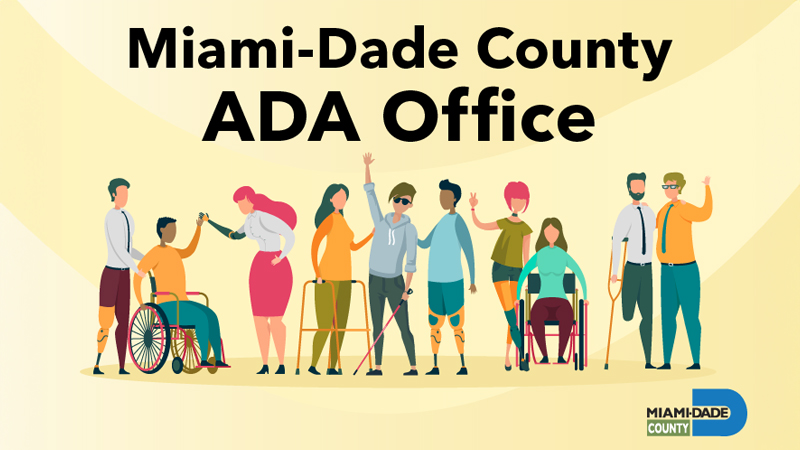
Florida’s Travis Trueblood says his new tribal court appointments reflect having ‘a foot in each canoe’
Trueblood says state courts could learn a thing or two from tribal courts, namely, peacemaking

Travis Trueblood
Travis Trueblood was about 10 when he left the Choctaw Nation of Oklahoma and moved to Lakeland with his mother after his parents’ divorce.
His dad worked in the steel industry, and so Trueblood was used to moving around a lot, for six months at a time, to wherever the next job called. And because of this, he was actually born in Pittsburgh, not on the reservation he called home. But he always knew he’d soon be back in Oklahoma.
That is, until Florida.
“Me moving to Florida was a big adjustment, not going to lie,” said Trueblood, now 49. “This was the place that I was going to be for a while. In Florida, there’s so many different types of people.”
Trueblood missed the baseline understanding about his life and his lineage after he left the reservation.
“If I walked next to you on the street, you probably wouldn’t even know that I was Native. Because people have an expectation of what they think Native Americans are and what they should look like,” Trueblood said. “So, my entire life, as I’ve had a foot in each canoe, has been kind of explaining things to people, which I don’t mind doing.”

Great Seal of the Catawba Indian Nation
That’s a good thing, the not minding part, because explaining one society to the other has been a major throughline of Trueblood’s career, culminating recently in two major tribal court appointments. In May, Trueblood was appointed as one of two justices on a new tribal court for the Catawba Nation in Rockville, South Carolina. And, in June, he was appointed as an associate justice to the Nottawaseppi Huron Band of the Potawatomi Supreme Court in Fulton, Michigan.

Nottawaseppi Huron Band of the Potawatomi
Tribal courts generally have jurisdiction over what happens within tribal territory, except in criminal matters involving a person who isn’t Native American. And, in cases of guardianship or child custody, tribal courts are still generally given precedent, even if the dispute doesn’t happen on their land.
In both seats, Trueblood will be the final arbiter for the cases he hears since there is no Supreme Court yet for the Catawba Nation. He anticipates traveling to Michigan for the Supreme Court cases a couple times a year and to South Carolina for the tribal court a couple of days every other month.
There are 574 federally recognized Indian Nations. And tribal courts have been around for a long time, but Trueblood said he’s seen an “uptick” in the creation of these courts over the last decade.
“Some of the tribes require you to be a tribal member in order to be a judge,” Trueblood said, which would have disqualified him in these judicial appointments, since he is of the Choctaw Nation. “That’s very progressive on their part.”
Trueblood earned his law degree and MBA from Florida State University and his LL.M. from the University of Miami in real property and finance. His office is currently located in Ft. Lauderdale, and he is also licensed to practice in the District of Columbia, Maryland, and Texas.
When he first graduated from law school, Trueblood said he was hired by Holland & Knight to essentially lobby in D.C. on tribal issues. But, after two years, he left. He wanted to be in the courtroom.
So how did Trueblood get from Lakeland to a Supreme Court appointment in Michigan, and a tribal court appointment in South Carolina? It all started with a long drive.
When Trueblood was going to the University of Miami to earn his LL.M., he’d drive there from Lakeland, along U.S. 27, “which runs right down through the middle of Florida.”
He’d stop in small towns along the way to get gas or something to eat. One such town was Moore Haven in Glades County, where there hadn’t been an attorney for six years. Trueblood scored some of his first clients by stopping at the gas station there, about every two weeks, where there was also a small deli.
“The people that owned the place would see me sitting there, and they asked me what I did,” Trueblood said. “And before long, people were asking me if I would take their case.”
This is how Trueblood learned to be a lawyer, a “jack of all trades,” in small counties in Central Florida, where he estimates about half of his work still comes from today. For all his clients, Trueblood’s cases run the gambit: criminal defense, estate planning, real estate, civil, personal injury, guardianship, and family law.
“There aren’t really a lot of lawyers like that anymore, but in very rural places in Florida, there still are,” Trueblood said. “I’m still the only lawyer in Glades County, Florida. That’s just the way it developed.”
It’s where Trueblood felt one identity connect with the other, too.
For one thing, there are Indian reservations in Glades and neighboring Hendry County.
“Florida has a lot more Native Americans than people think, and it’s a very small-knit community,” Trueblood said. “I represent a ton of Native American clients. And a lot of it’s word of mouth.”
Because Florida’s tribal courts have only been stood up in the last several years, Trueblood ended up representing a lot of Native Americans in state court. He said that especially in cases like guardianship or child custody, judges would ask him how tribal nations handled the issues.
“I’ve been asked several times, ‘Culturally, who would be the next person in line?’” Trueblood said. “The court might not know that, and the court might make a different decision.”
But even beyond meeting Native American clients in rural Central Florida, the small-town vibe of these places spoke to Trueblood, in a way that connected with his heritage.
“You really couldn’t afford to not play well with others because it was such a close community and we all depended on each other,” said Trueblood.
He added: “In the tribal world, we’re all part of one world. Even if there’s a dispute between two people, and someone needs to be made whole, we all still have to get along at the end of it.”
State courts have taught tribal courts to adopt certain standards like due process, but state courts could also learn from tribal courts, especially regarding family matters, Trueblood said.
“The judges typically focus more on peacemaking and trying to find something that the parties can live with,” he said of tribal courts. “I think that’s something that the state courts could actually learn from — look more like a peacemaker, instead of the great decider, where there’s a winner and a loser.”
This is the unique insight Trueblood brings to his new appointments.
Sometimes his expertise on translating these two worlds thrusts him into controversial discussions.
A veteran of the U.S. Navy and Air Force, Trueblood still serves as a judge advocate in the military as a reservist. About four years ago, when he was off duty, he got a call from the Pentagon.
“I was like, ‘why is someone from the Pentagon calling me?’” Trueblood said. He answered it and was put on speakerphone by a high-ranking general in a room full of other Pentagon officials.
These officials had a question about their Native American airman: “Is he allowed to use peyote?”
Generally, yes, Trueblood told them, under federal law. He then explained the law’s nuances.
“I believe I successfully answered their question,” Trueblood said, chuckling. “But it was still kind of shocking to be put on the spot like that.”
Originally published at https://www.floridabar.org/the-florida-bar-news/floridas-travis-trueblood-says-his-new-tribal-court-appointments-reflect-having-a-foot-in-each-canoe/
The post Florida’s Travis Trueblood says his new tribal court appointments reflect having ‘a foot in each canoe’ first appeared on City News Miami.
Law - City News Miami originally published at Law - City News Miami

